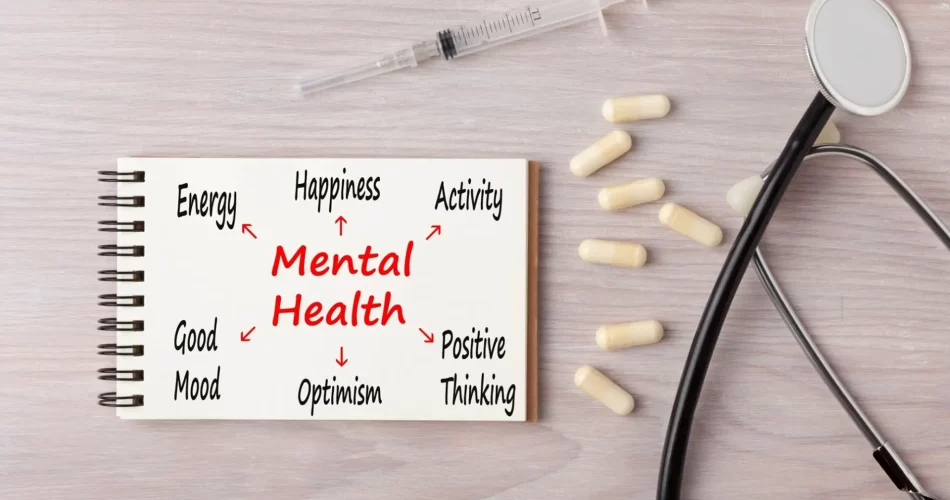Last Updated on 4 March 2024 by Ezra Matias
The prevalence of mental health problems in South Africa is high, with an estimated 1 in 5 people experiencing a mental health disorder in their lifetime.
Mental health, an essential aspect of overall well-being, is often overlooked and misunderstood.
Its prevalence in a country is a critical indicator of the challenges individuals face and the strength of support systems in place.
Key Facts
- High prevalence of mental health problems in South Africa, affecting 1 in 3 individuals.
- Key statistics reveal the urgency of addressing mental health issues.
- Factors contributing to the problem: poverty, violence, limited access to services, and stigma.
- South African government initiatives and support for mental health.
- Coping strategies and resources for individuals, including talking to someone you trust and seeking professional help.
- Useful resources such as SADAG, SASMH, SANCA, and Lifeline South Africa.
- The importance of breaking the silence, understanding contributing factors, and working together for better mental health in South Africa.
Statistical Overview

Statistical data reveals the alarming prevalence of mental health problems in South Africa.
According to recent studies, approximately 30% of South Africans are affected by mental health issues at some point in their lives.
According to previous studies depression and anxiety disorders are the most prevalent, affecting around 10% and 15% of the population, respectively.
These numbers highlight the urgent need for mental health support and interventions.
Factors Contributing To Mental Health Issues

There are a number of factors that contribute to the high prevalence of mental health issues in South Africa.
Some of the most significant include:
- Poverty and inequality: South Africa is one of the most unequal countries in the world, with a large proportion of the population living in poverty. Poverty and inequality are major risk factors for mental health problems.
- Violence and trauma: South Africa has a high rate of violence, both interpersonal and structural. Violence and trauma are also major risk factors for mental health problems.
- Limited access to mental health services: There is a shortage of mental health professionals in South Africa, and access to mental health services is limited, especially in rural and underserved areas.
- Stigma associated with mental illness: There is still a stigma associated with mental illness in South Africa, which can prevent people from seeking help and treatment.
Government Initiatives And Support

The South African government has implemented a number of initiatives and support programs to address mental health issues in the country.
These include:
- National Mental Health Policy Framework and Strategic Plan 2023-2030: This policy framework provides a comprehensive approach to mental health care in South Africa, with a focus on prevention, early intervention, and integration of mental health care into primary health care services.
- Mental Health Care Act of 2002: This legislation provides for the protection of the rights of people with mental illness and ensures that they have access to quality mental health care services.
- Psychosocial Support Programme: This program provides psychosocial support to people who have been affected by trauma or violence.
- School Mental Health Programme: This program provides mental health support to students in schools.
- Mental Health Awareness Month: Every October, the South African government hosts Mental Health Awareness Month to raise awareness of mental health issues and promote mental health literacy.
Coping Strategies And Resources

There are a number of coping strategies and resources available to help people in South Africa cope with mental health issues.
Some of the most common and effective strategies include:
- Talk to someone you trust: This could be a friend, family member, therapist, or other mental health professional. Talking about what you are going through can help you to feel less alone and more supported.
- Take care of yourself physically: This means eating a healthy diet, getting enough sleep, and exercising regularly. Taking care of your physical health can also improve your mental health.
- Find healthy ways to manage stress: This could include relaxation techniques such as yoga or meditation, or spending time in nature.
- Avoid alcohol and drugs: Alcohol and drugs can worsen mental health problems.
- Seek professional help if needed: If you are struggling to cope with your mental health issues on your own, please seek professional help from a therapist or other mental health professional.
Some of the most useful resources include:

- The South African Depression and Anxiety Group (SADAG): SADAG is a non-profit organization that provides support and information to people with depression and anxiety.
- The South African Society for Mental Health (SASMH): SASMH is a non-profit organization that provides support and information to people with mental health problems.
- The South African National Council on Alcoholism and Drug Dependence (SANCA): SANCA is a non-profit organization that provides support and treatment to people with alcohol and drug problems.
- Lifeline South Africa: Lifeline South Africa is a non-profit organization that provides crisis support and suicide prevention services.
Conclusion
In South Africa, mental health is not just a statistic. It’s a story, a struggle, and a strength.
By breaking the silence, understanding the contributing factors, and embracing change, we can work toward a South Africa where mental health is a priority, and people always come first.
Let’s continue our journey to better mental health, together.










